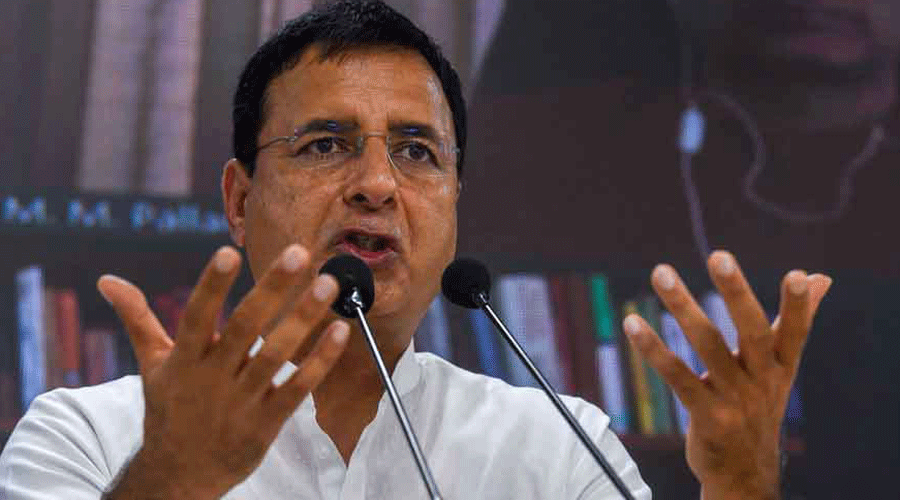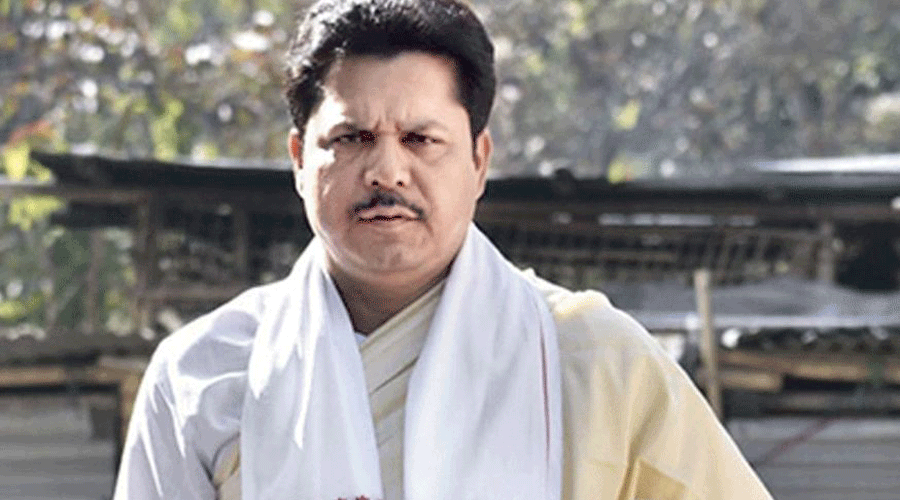The Congress on Thursday asked whether India’s future can be founded on a religious divide and income disparities, arguing that the BJP was using divisive politics to distract attention from the people’s real concerns and retain power.
Explaining why the Congress was in quest of a “new resolve” at the Udaipur Chintan Shivir that begins on Friday, party communications chief Randeep Surjewala said: “Can the country be run like this? Divide and rule has become State policy. To divert attention from its failures and the insurmountable challenges, the Narendra Modi government creates religious divisions, targeting minorities, the Muslims in particular. They have transformed hate against Muslims into the art of winning elections.”
Surjewala said this model of BJP politics posed “a serious threat to the country”, bulldozing the Constitution and creating fear among the minorities.
“They sow the seeds of discord. It comes in different forms — what you eat, what you wear, loudspeaker, bulldozer, shamshan-kabristan, mandir-masjid-church-gurdwara…,” he added.
Surjewala said: “Development, education, health, industry, employment, agriculture no longer dominate the electoral discourse. A large section of the media is being used to set this narrative.”
“This is the biggest challenge before the nation and its citizens today. Is this the India of the dreams of Gandhi, Nehru, Patel, Bose, Tilak, Ambedkar, Maulana Azad, Rajendra Prasad, Bhagat Singh, Bismil, Ashfaqulla Khan and the crores of freedom fighters? The bulldozer of bigotry, superstition, sectarianism, fanaticism, injustice and intolerance has trampled upon India’s future. The Congress, which will never compromise with its principles, will evolve a strategy at the Chintan Shivir to fight these forces. The new resolve will take shape there.”
Surjewala suggested that the divisions and hatred in society had created an atmosphere in which traditional politics couldn’t succeed.
“The challenges before the nation and the Congress are interlinked. Sonia Gandhi said there is no magic wand. We will have to look within and address our organisational weaknesses, but the main problem is how to counter this manufactured hate and polarisation. The nation will have to decide — should we keep fighting on such issues or focus on prices, jobs, agriculture?” he said.
Surjewala spoke about a “government-sponsored pattern of hate”.
“Now, nothing will happen in Uttar Pradesh as the elections are over. Now you will see tension and violence in Rajasthan and Karnataka. They sow seeds of discord, reap the electoral harvest and move to another place,” Surjewala said.
“In the process, India is enduring a painful and vicious assault on its democracy, economy and societal harmony. It’s obligatory on the Congress to defend the ethos of the nation and find lasting solutions for peaceful coexistence.”
Surjewala referred to the issues that the Modi government had succeeded in distracting public attention from.
“The wealth of the 142 richest Indians has gone up by Rs 30 lakh crore in one year whereas the income of 84 per cent of Indian households has dropped drastically. The rupee has fallen to 77.56 to a dollar. India’s debt has risen from Rs 55 lakh crore in 2014 to Rs 135 lakh crore in 2022,” he said.
“The life of the common man has been made hellish by the backbreaking price rise. Cooking gas, petrol, diesel, atta, pulses, cooking oil, vegetables, soaps, toothpastes, TV, fridge and every other consumable good has become costlier.”
He referred to the high unemployment rate and the three lakh vacancies in government jobs alone, the scrapping of the SC/ST sub-plan in the budget, an alleged conspiracy to hand over the agriculture trade to chosen industrialists, and Chinese encroachment on Indian territory.
The Congress will discuss all these issues in six separate groups, apart from organisational matters, amid a strong push for the assignment of key tasks to the younger politicians.












